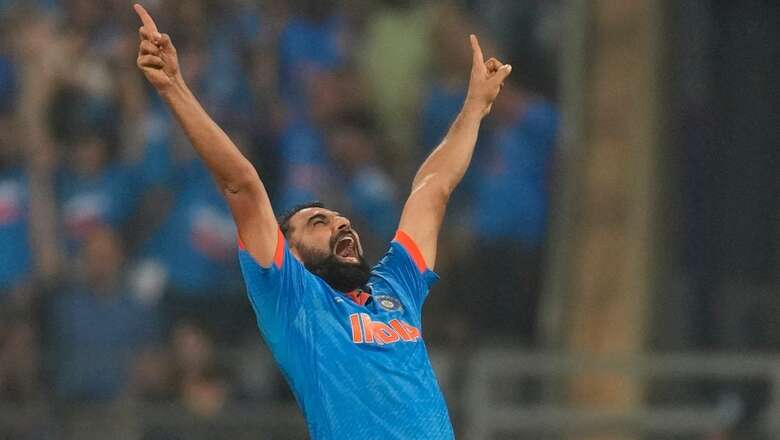
views
India’s approach to secularism is intricate and distinctive, seeking to honour and safeguard the nation’s religious and cultural diversity. Unlike advocating for a complete separation of religion and state, Indian secularism emphasises equal recognition and treatment of all religions by the state. This concept is not static but dynamic, adapting to society’s evolving needs and challenges. Embedded in the constitution, India’s secularism guarantees citizens freedom of conscience and the right to practice, profess, and propagate religion. It explicitly prohibits discrimination based on religion and upholds the cultural and educational rights of minorities. India officially declares itself a secular state, devoid of an official religion and refraining from favouring or interfering with any faith.
Historically and culturally, India’s secularism has been shaped by the interplay of various religions and traditions. Our country, home to diverse faiths such as Hinduism, Buddhism, Jainism, Sikhism, Islam, Christianity, Zoroastrianism, Judaism, and Baháʼí, reflects periods of religious harmony and conflict throughout history. Leaders like Mahatma Gandhi, Jawaharlal Nehru, Rabindranath Tagore, BR Ambedkar and Raja Ram Mohan Roy have played crucial roles in defining and developing the concept.
However, India’s secular fabric faces challenges from issues like communalism, fundamentalism, terrorism, conversion, cow protection, personal laws, and temple-mosque disputes. These challenges test the resilience of India’s unity and diversity.
Indian cricketer Mohammed Shami took a five-wicket haul against Sri Lanka in the World Cup 2023. After dismissing the last batsman, Shami fell on the ground and touched his forehead to the pitch, which some social media users interpreted as a ‘sajda’, a Muslim act of prostration and prayer. Shami faced backlash from some people in India who accused him of bringing religion into sports and disrespecting the national flag. Some Pakistani handles tried to create an unnecessary controversy about Shami’s gesture, proclaiming that he refrained from completing the prostration (sajda) since he was an Indian Muslim in India; an attempt to add to their propaganda narrative of systematic Muslim persecution in India by majority Hindus.
Shami responded to the criticism by saying that he was not performing a sajda but was exhausted and relieved after a tough match. He also said that even if he wanted to pray, no one could stop him, as he was a proud Indian and a proud Muslim. He defended his right to freedom of religion and expression and asked his fans and detractors to focus on his performance rather than his beliefs.
The incident is reflective of how religion can sometimes influence or interfere with sports, especially in a country like India, where religious diversity and sensitivity is high. There is a need to respect the players’ individual choices and identities and appreciate their achievements without creating unnecessary controversy or conflict. Sports should be a unifying force rather than a divisive one, and fans should support their players regardless of their religious affiliation.
Pakistan has a history of mixing religion and cricket, which has sometimes led to problems and criticisms. Some Pakistani cricketers have become more religious over the years and have joined Islamic missionary groups or adopted conservative lifestyles. This has raised questions about their professionalism and commitment to the game, as well as their influence on other players. Some Pakistani cricketers have faced discrimination or harassment because of their religion, especially if they belong to minority faiths such as Hinduism or Christianity. They have been treated unfairly by some teammates, officials, or fans, who have questioned their loyalty or patriotism.
Pakistani cricketers have also used religion as a motivation or justification for their performance, especially against rival teams such as India. They have claimed that their victory was a victory for Islam, or that they were avenging the mistreatment of Muslims by other countries. This has provoked anger and resentment from other parties and has damaged the spirit of the game.
Religion is a personal matter and everyone has the right to practice their faith as they wish. However, when it comes to sports, especially cricket, which is a passion for millions of people worldwide, religion should not be a source of conflict or controversy. Cricket should be a game of skill, talent, and sportsmanship, not a platform for political or religious agendas.
The claim that there is “Muslim genocide in India” by some Western media outlets, some Middle Eastern, as well as Pakistani and Turkish media houses, is based on a selective and misleading representation of some violent incidents that occurred in India, such as the 2002 Gujarat riots or the 2020 Delhi riots, which involved clashes between Hindu and Muslim groups. These incidents are not indicative of a state-sponsored or systematic campaign of violence against Muslims, but rather isolated and complex events that have multiple causes and contexts.
India is a secular and democratic country that respects and protects the rights of all its citizens, regardless of their religion, and Muslims are not discriminated against or oppressed in India. The claim of “Muslim genocide in India” by anti-India lobby groups is motivated by an anti-Hindu bias or agenda and it tries to draw a false comparison with the situation of minorities in Pakistan, where they may face more severe challenges and violations of their rights.
Secularism in India is not perfect, and it faces criticism and debates from various quarters, both within and outside the country. There are contrasting perspectives on secularism in India. While some view it as “pseudo-secularism” favouring minority religions, others see it as “selective secularism” influenced by political interests. Another perspective labels it “alien secularism”, not aligning with Indian culture.
However, secularism in India is a practical and adaptive approach, requiring constant dialogue and involvement. It is constitutionally mandated, a social necessity for harmony among diverse religious communities, and a national aspiration reflecting democratic ideals, development, and justice.
The author is a writer and an educationist from Srinagar. Views expressed in the above piece are personal and solely those of the author. They do not necessarily reflect News18’s views.




















Comments
0 comment